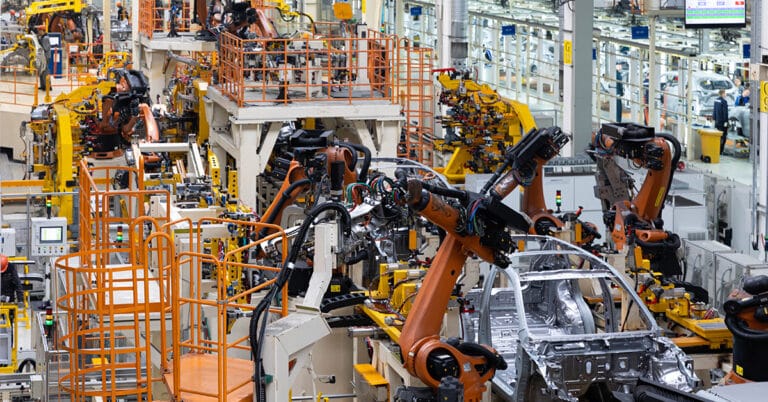Chicago has long stood as a cornerstone of American manufacturing, fueling the Midwest’s industrial rise and helping shape the national economy. The city’s manufacturing sector — characterized by resilience and adaptability worthy of Chicago’s “City of Big Shoulders” nickname — remains vibrant. While challenges persist in regaining pre-pandemic employment levels, recent developments point to a robust resurgence. Notably, Illinois doubled private-sector investments from $6.3 billion in 2023 to $12.5 billion in 2024, with significant growth in manufacturing and clean energy sectors.
Strategic initiatives are propelling the momentum. A partnership between World Business Chicago and the Illinois Manufacturing Excellence Center (IMEC) aims to equip small and mid-sized manufacturers with the tools to navigate evolving global dynamics and technological shifts. Events like the International Manufacturing Technology Show (IMTS) further highlight Chicago’s role as a hub for innovation and industry collaboration.
Below, we’ll explore Chicago’s manufacturing landscape in depth, from current trends and transformative initiatives to economic contributions and future opportunities that place the city at the forefront of modern manufacturing.
Overview of Chicago’s manufacturing sector
Chicago’s deep-rooted history as a manufacturing leader helped shape the industrial backbone of the Midwest and the U.S. Today, the city remains a vital hub, contributing billions to the regional economy and supporting more than 400,000 jobs across the metropolitan area.
The sector is highly diversified, spanning food processing, metal fabrication, machinery, electronics, plastics, and clean energy technologies. The Chicago region is also emerging as a center for Industry 4.0 innovations, including automation, robotics, and digital manufacturing systems.
Initiatives like IMEC and partnerships led by World Business Chicago are accelerating workforce development and smart manufacturing adoption, which is critical for ensuring the global competitiveness of small and mid-sized manufacturers.
Recent data from Empowered Automation and regional economic studies rank Chicago among the top U.S. manufacturing markets, thanks to its infrastructure, logistics capacity, and skilled labor force. This resilience and momentum highlight manufacturing’s enduring role in the city’s economic future.
Largest manufacturing companies in Chicago
Several major firms shape Chicago’s dynamic industrial ecosystem and influence both local economic health and global supply chains. These companies span diverse sectors, underscoring the city’s industrial strength and versatility:
- Boeing: A global leader in aerospace manufacturing, Boeing supports thousands of high skill jobs and drives aviation innovation through partnerships with engineering schools and tech incubators.
- Abbott Laboratories: Specializing in pharmaceuticals and medical devices, Abbott plays a key role in healthcare manufacturing. It also drives research and workforce development in collaboration with local universities.
- Mondelez International: Headquartered in Chicago, Mondelez is a food processing giant known for iconic snack brands. It contributes to local economic development through community initiatives and sustainable sourcing.
- ArcelorMittal: A major player in steel and metal production, ArcelorMittal’s Chicago operations support critical infrastructure projects and often align with city efforts in innovation and sustainability.
- Navistar International: Focused on heavy-duty trucks, Navistar strengthens regional manufacturing through R&D investment and partnerships with Illinois-based technical training programs.
These firms generate employment and actively support initiatives in innovation, sustainability, and workforce readiness across Chicago’s manufacturing sector.
Trends influencing Chicago’s manufacturing sector
Chicago’s manufacturing landscape is rapidly evolving, shaped by new technologies, workforce demands, environmental responsibility, supply chain realignment, and other manufacturing trends. Here’s how manufacturers are strategically responding:
Advanced automation & Industry 4.0
Manufacturers in Chicago are embracing automation and smart technologies such as predictive maintenance tools to remain competitive. Robotics, AI-driven analytics, and interconnected systems are delivering gains in productivity, cost efficiency, and quality. Companies such as Empowered Automation are implementing tailored solutions that streamline production and reduce human error, advancing the region’s Industry 4.0 transformation.
Workforce development & skilled labor
Skilled labor shortages remain a challenge. To address this, manufacturers are investing in training partnerships. One example: the World Business Chicago and IMEC collaboration focuses on technical education, apprenticeships, and workforce attraction programs to strengthen the labor pipeline.
Sustainability & green manufacturing
In response to tighter environmental standards, Chicago manufacturers are adopting greener practices. These include energy-efficient technologies, waste reduction programs, and eco-friendly design processes — efforts that boost compliance and strengthen the city’s sustainability leadership.
Reshoring & supply chain localization
Supply chain disruptions have accelerated reshoring efforts, with Chicago emerging as a prime location. Its central geography, advanced infrastructure, and mature industrial base offer logistical advantages, enabling manufacturers to reduce delays, cut transportation costs, and ensure greater quality control.
Opportunities for Chicago manufacturers
Chicago’s manufacturing sector is experiencing a renaissance, driven by strategic partnerships and infrastructure investments.
Strategic partnerships and collaboration
World Business Chicago and IMEC have launched a strategic partnership to strengthen the city’s manufacturing ecosystem. Their joint efforts aim to align resources and strategies that promote inclusive growth and competitiveness.
Investment in technology and infrastructure
Digital and physical infrastructure upgrades are powering modern manufacturing. Empowered Automation Solutions, a Chicago-based firm, provides real-time automation software that gives manufacturers deep visibility into operations and enterprise data.
Market expansion and export opportunities
Chicago’s central location and multimodal infrastructure make it a key gateway for domestic and global trade. This geographic advantage allows manufacturers to expand into new markets with reduced risk and improved logistics control.
Innovation & strategic partnerships in Chicago manufacturing
Innovation is fueling Chicago’s manufacturing resurgence, with strategic partnerships at the core of this evolution. The WBC-IMEC collaboration demonstrates how public-private partnerships can accelerate innovation. With a network of 250-plus manufacturers and partners, the initiative enhances knowledge sharing, resource alignment, and ecosystem development.
Local firms are adopting Industry 4.0 tools such as automation, IoT, and real-time analytics to modernize operations. Research universities and tech incubators also play a pivotal role in equipping the workforce with future-ready skills and by fostering a culture of innovation across Chicago’s manufacturing landscape.
Overview of manufacturing in Illinois
Illinois remains a manufacturing powerhouse, with Chicago at its core. The state’s geographic centrality supports national logistics and distribution, reinforced by a world-class transportation network of rail, road, air, and waterways. This makes Illinois particularly attractive for any manufacturing company and supply chain operations.
Strong educational institutions provide a steady stream of skilled labor. State-backed initiatives (such as tax incentives and manufacturing grants) encourage growth, R&D, and automation adoption. Collaborations with IMEC further advance innovation and workforce development, securing a competitive edge for industrial manufacturing in Illinois.
The future outlook for manufacturing in Chicago
Chicago’s manufacturing future is defined by growth, innovation, and technological adoption. Advanced automation and robotics likely will continue driving productivity, cost reduction, and quality improvement. Strategic partnerships will remain key in preparing a future-ready workforce and aligning industry with global trends. Such efforts could go a long way toward ensuring that Chicago maintains its edge in the evolving manufacturing landscape.
Manufacturing companies in Chicago and the sector as a whole are undergoing a powerful transformation. Through innovation, strategic collaboration, and infrastructure investment, the city is poised to lead the next era of American manufacturing excellence. For industrial manufacturing support in your area, reach out to ATS today and discover how we can assist you.

